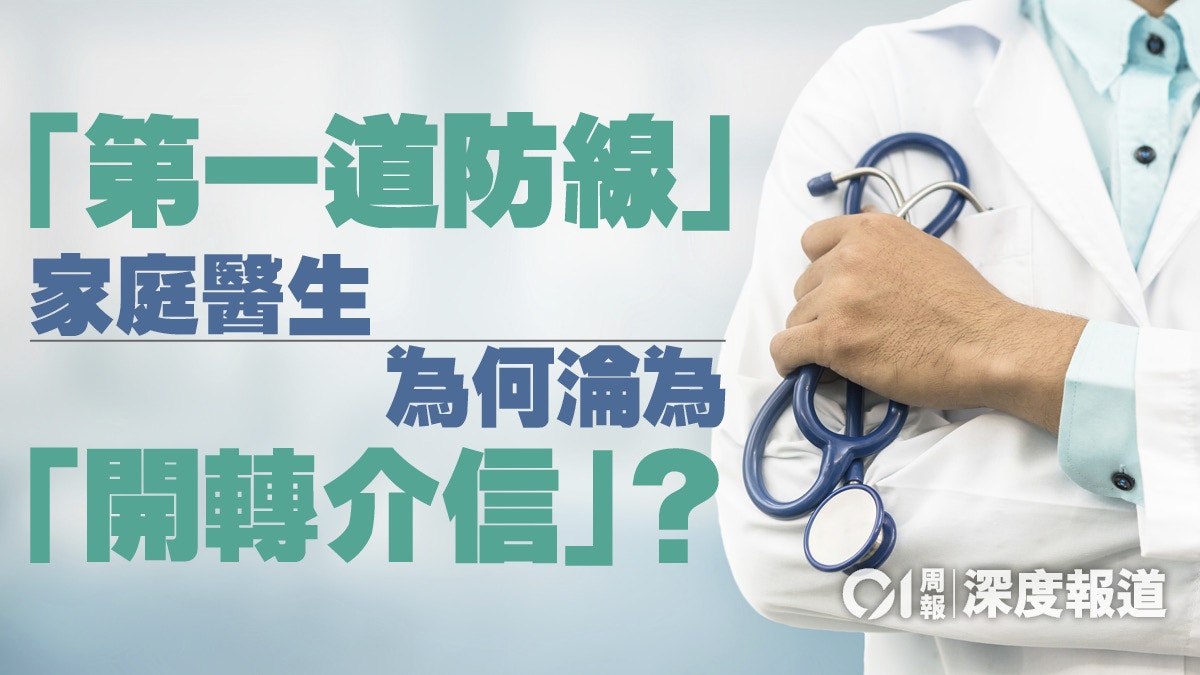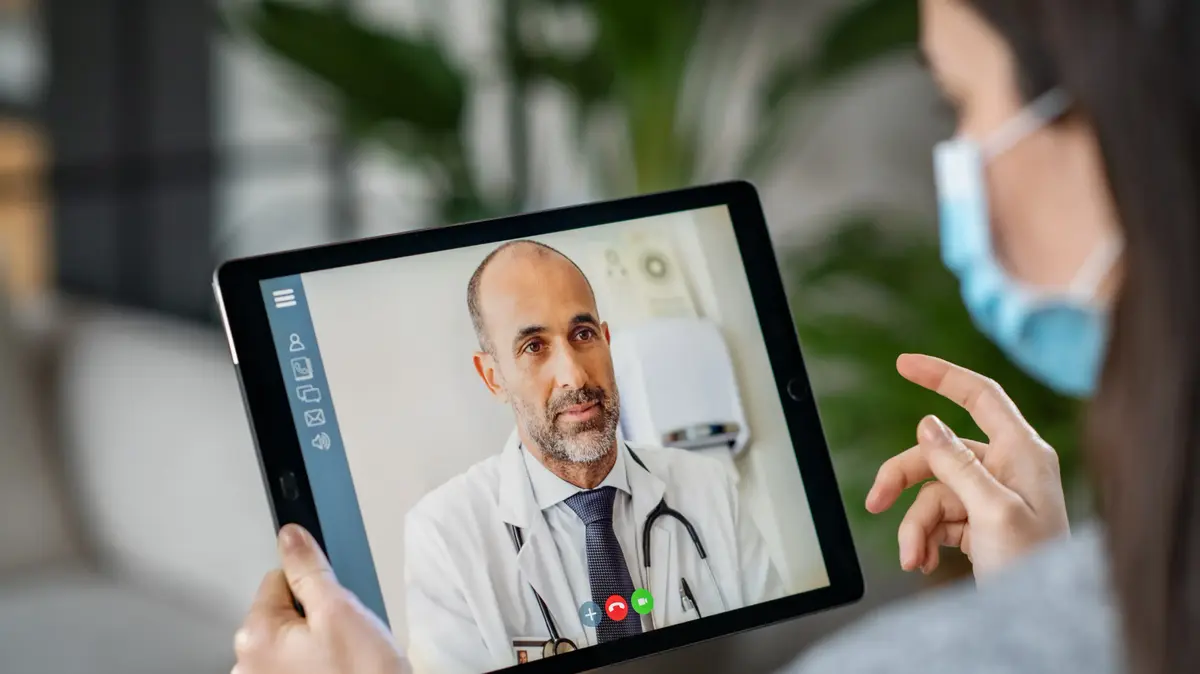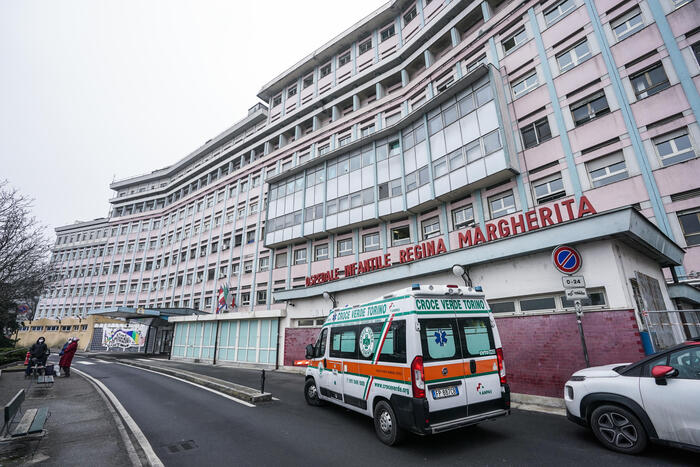weekly
Author: Hao Ziyu
2020-06-23 16:30
Date of last update: 2020-06-23 16:30The outbreak of New Coronary Pneumonia in Hong Kong in the past six months has now entered the late stage of anti-epidemic. It is worth noting that the flu peak that lasted for four or five months in the past year is due to the coincidence of the New Coronary Pneumonia epidemic in time, and multiple epidemic prevention measures are indirect. Reduced the rate of influenza infection. It can be seen that compared to focusing on advanced treatment techniques, paying more attention to prevention awareness and developing good hygiene habits can better protect the health of the citizens. However, the role of family doctors as the "first line of defense" to protect the health of citizens is underestimated in the epidemic. Can they play a real role in the future health work and public health crisis?
During the ongoing outbreak of New Coronary Pneumonia, many patients went to private clinics for medical treatment before diagnosis, and private doctors became the "first line of defense" to prevent outbreaks in the community.
Participation in the epidemic is actually very limited?
The outbreak of New Coronary Pneumonia has been in the past six months. (Profile picture / Photograph by Liang Pengwei)
Since the government has gradually expanded the virus testing program, as of June 1, there were more than 12,000 deep throat saliva sample tests arranged by private doctors or referred by private hospitals, of which 84 cases were diagnosed. If all 7,000 private medical practitioners in Hong Kong can participate in the test, a large and effective test network can be formed.
However, private doctors encountered many challenges in the early stages of the outbreak. The Hong Kong College of Family Medicine conducted an online questionnaire survey with doctor members from January 31 to understand the status of clinical services provided. As a result, 87.2% of doctors said that clinical services were affected by the epidemic, and more than half of the interviewed doctors are still providing daily primary medical services However, most doctors choose to reduce non-emergency services or consultation time. Six private doctors need to close the clinic.
The interviewed doctors were mainly concerned about the difficulty in obtaining personal protective equipment (PPE), lack of rapid diagnostic tests and training to deal with new coronary pneumonia, and believed that there was a need to establish a more effective public health policy to contain the epidemic and to coordinate public and private doctors. Many other interviewees asked the government to set up designated clinics, although the Hospital Authority announced 18 "designated clinics" on the evening of February 6 to receive patients with mild fever or symptoms of upper respiratory tract infections to find out the infection as soon as possible The case was dealt with as soon as possible, but the problems reflected by other concerns have not been resolved, limiting the role that family doctors can play in the epidemic.
Lin Lujuan believes that the family doctor is an "intermediary" who will judge what diseases the patient may suffer from and what treatment is needed, and provide basic treatment services. (Photo by Huang Shuhui)
In addition to being the head of the Department of Family Medicine and Primary Medicine at the Li Ka Shing School of Medicine of the University of Hong Kong, Lin Lujuan will also visit the family medicine department of Ap Lei Chau Clinic. She believes that family doctors are like middlemen, first classifying patients as being sick or not. Then distinguish between serious and non-serious, and then recommend him to the hospital for treatment according to the condition. "In this epidemic, many patients need to be tested and tested, and 10% of them are done in community hospitals, including "Fuyang" (refers to the discharge standard, but the positive result of the new coronary pneumonia virus test later) People also need a family doctor to explain the precautions and reasons for them." When the body shows symptoms, people often worry because they don’t understand, and a reliable doctor is needed to explain to them.
Li Guodong is a private practice specialist in family medicine. He is currently the chairman of WONCA World Family Medicine Organization and the psychologist in the research of the wisdom classics. He said that Hong Kong does not have a fever clinic like the Mainland to accept fever patients for pre-screening. Because many areas are worried that these centers will spread the virus to local residents, they strongly oppose it, but the government should have been with the general practice for a long time. Doctors plan together to choose which clinic to choose, and consider how to choose a safer site, so that the public can rest assured. "However, the level of participation in primary care has not been enough. Whether it is a general government plan, or diversion, intensive treatment, these are all started from the hospital, and the participation at the community level is not enough. If the plan is more general, With the participation of doctors, starting from the grassroots side, the epidemic will be controlled particularly well and will be more effective."
What responsibility does the family doctor assume in the epidemic? (Profile picture)
"The first line of defense" reduced to "open referral letter"?
What responsibility does the family doctor assume in the epidemic? Why is it described as the "first line of defense"? It starts with their role in daily life. To clarify the role of family doctors, we first need to understand the relationship between family medicine, primary care, general practitioners, and family doctors. Primary care is at the first level of the entire medical system, while the second and third levels mainly include specialist and hospital services. According to the Food and Health Bureau, primary care is the first point of contact in the ongoing medical care process and provides a wide range of services for the community in which residents live and work nearby, including:
1. Health promotion
2. Prevention of acute and chronic diseases
3. Health risk assessment and disease detection
4. Treatment and care of acute and chronic diseases
5. Support patient self-management
6. Provide rehabilitation, support and relief treatment for people with disabilities or terminal illness
Primary care can be provided by different healthcare professionals, including Western medicine, dentists, Chinese medicine, nurses, chiropractors, physical therapists, occupational therapists, clinical psychologists, nutritionists, pharmacists, optometrists, speech therapists and Podiatrist, etc. Family doctors are the main providers of primary care. The core of family medicine knowledge is derived from other specialties, mainly internal medicine, external medicine, obstetrics and gynecology, pediatrics and psychiatric medicine, and integrates "behavior science" with traditional biology and "clinical medicine". Into a new medical field.
According to the list of specialist doctors registered by the Medical Council of Hong Kong, family medicine is one of the categories that requires strict training and assessment. So, is a family doctor equal to a general practitioner? In fact, family doctors are a profession and a job. They can be done by family medicine specialists, or by pediatrics, gynecology and other doctors. General practitioners are general practitioners. As the name implies, they can take care of both internal and external departments. Their concepts and working procedures are similar to family doctors to a certain extent. For example, they are patient-centered and find the cause according to the patient's family, life, and environment.
Family doctors are the main providers of primary care. The core of family medicine knowledge is derived from other specialties, mainly internal and external, obstetrics and gynecology, pediatrics and psychiatric medicine. (Profile picture)
The role of family doctors in the lives of citizens is linked to Hong Kong's medical system. Public hospitals have been criticized for their long waiting time in specialist outpatient clinics, and the waiting time for different districts is different. Emergency conditions can usually be within a week, but stable new diseases have to wait one to two years. How to judge whether the patient is a patient Emergency conditions and whether patients need to be referred to a specialist for diagnosis and treatment are particularly critical for the patient and the entire medical system. This important responsibility often falls on family doctors who are "health gatekeepers." The family doctor can be said to be a screening officer who is responsible for identifying these patients who need different medical services, placing them accurately in different waiting areas, and treating other patients who do not need to seek specialist treatment. But because of this, many people ask for a family doctor only to get a referral letter from a specialist—this is a serious underestimation of the role of family doctors.
As Lin Lujuan said, the family doctor is an "intermediary", they will judge what disease the patient is most likely to suffer from, what kind of treatment is needed, and will also provide basic treatment and disease prevention services. In addition to the role of stress, it also provides some medical services based on family medicine or necessary. Many diseases can actually be solved in the general outpatient clinic."
Continue reading:【New Coronary Pneumonia】Can panic family doctors make a cure for panic in the epidemic?
related articles︰
[Community Medical. A] What kind of deficiencies does grassroots medical care owe for 30 years of preparation?
[Community Medical. Two] From the "medical and social cooperation" to solve the community needs to repair the current situation
[Community Medical. Three] Health centers should take "medical welfare" as the basis to relieve the burden of public medical services
[Health Center. Above] First-line primary medical shunt patients reduce public hospital outpatient pressure
[Health Center. Next] There are still restrictions on the optimal hardware support for the overall deployment of medical services
[Primary care. One] The public hospital's explosive medical aid system "was not met"
The above excerpt is from the 219th issue of "Hong Kong 01" Weekly Report (June 22, 2020) "After the Epidemic Situation, Thinking of Family Doctors' Ability to Keep Health".
More weekly articles:【01 Weekly News Page】
[01 Initiative] Listen to the pains of the four generations to resolve deep-level structural contradictions
"Hong Kong 01" Weekly, available at major newsstands, OK convenience stores and Vango convenience stores. You can also subscribe to the weekly report here, or click here to preview the weekly e-newsletter to read more in-depth reports.
New Coronary Pneumonia Medical System Primary Medicine 01 Weekly In-depth Report














